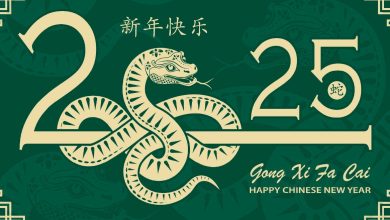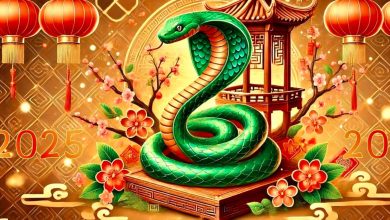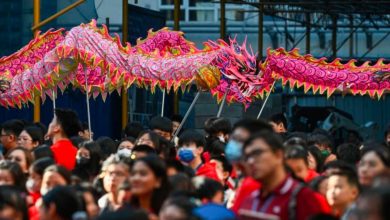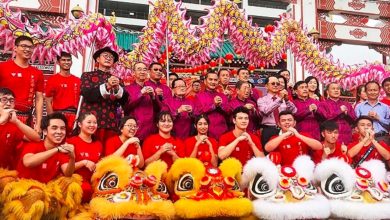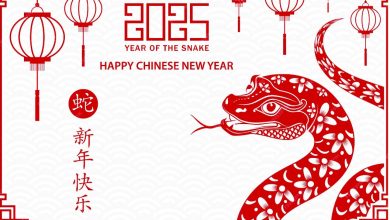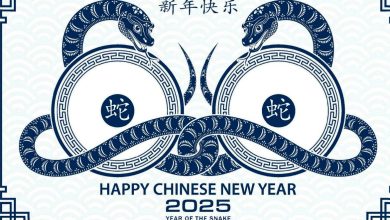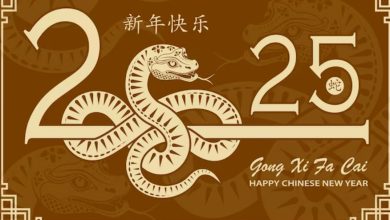Chinese new year holidays 2025

Chinese New Year, also known as the Spring Festival (春节, Chūnjié), is the most important traditional festival in China and many other Asian countries with significant Chinese communities. It marks the start of the lunar calendar and is celebrated with grand festivities, family reunions, and cultural traditions that have been passed down for centuries. In 2025, the Chinese New Year will fall on Wednesday, January 29, ushering in the Year of the Snake. This article will delve into the dates, traditions, and significance of the Chinese New Year holidays in 2025.
Chinese New Year Dates and Public Holidays in 2025
The official Chinese New Year holidays are determined by the Chinese government and vary slightly from year to year. In 2025, the public holidays for Chinese New Year in mainland China are expected to be as follows:
- Official Holiday Period: Wednesday, January 29, 2025, to Tuesday, February 4, 2025 (7 days total).
The holiday typically includes the Lunar New Year’s Eve and the first six days of the new lunar year. However, because Chinese employers often adjust work schedules to compensate for the holiday, it is common for people to work on the weekend before or after the holiday period. This practice ensures that employees can enjoy a longer continuous break.
Key Dates Leading Up to Chinese New Year 2025
Chinese New Year is not just a single day—it is part of a longer festival season that begins weeks in advance and continues for 15 days after the New Year’s Day. Below are some significant dates to keep in mind:
- Laba Festival (腊八节): January 18, 2025
- This marks the start of preparations for the New Year. Families cook Laba congee, a traditional dish made with rice, beans, and nuts, symbolizing good fortune.
- Little New Year (小年): January 22, 2025
- Known as the “Kitchen God Festival,” this day involves cleaning the house to sweep away bad luck and make room for good fortune.
- Lunar New Year’s Eve: January 28, 2025
- Families gather for a reunion dinner, considered the most important meal of the year. It is a time to reflect, give thanks, and share hopes for the coming year.
- Spring Festival Period: January 29 – February 4, 2025
- These are the official public holidays in China. People visit relatives, exchange red envelopes (红包, hóngbāo), and participate in cultural activities such as dragon dances, temple fairs, and setting off firecrackers.
- Lantern Festival (元宵节): February 12, 2025
- This marks the end of the Chinese New Year celebrations. Families light lanterns and eat tangyuan (sweet glutinous rice balls) to symbolize unity and happiness.
How Chinese New Year is Celebrated
Chinese New Year is a time of joy, tradition, and family togetherness. While customs vary across regions and cultures, several traditions are widely observed:
- Cleaning and Decorating: In the days leading up to New Year’s Eve, families thoroughly clean their homes to sweep away bad luck. Red decorations, such as lanterns, banners, and paper cuttings, are hung to invite good fortune.
- Reunion Dinner: On New Year’s Eve, families gather for a feast that includes symbolic dishes like fish (representing abundance), dumplings (symbolizing wealth), and glutinous rice cakes (signifying progress).
- Red Envelopes: Elders give children red envelopes filled with money as a gesture of good luck and blessings for the year ahead.
- Fireworks and Lion Dances: To ward off evil spirits and welcome the New Year, people set off firecrackers and enjoy lion and dragon dances.
Traveling During Chinese New Year
Chinese New Year is also known for the Chunyun (春运) period, the largest annual human migration in the world. Millions of people travel home to celebrate with their families, causing transportation systems to be incredibly busy. If you plan to travel in China during this time, it is essential to book tickets well in advance and be prepared for crowded trains, buses, and airports.
Chinese New Year in Other Countries
Chinese New Year is celebrated not only in China but also in many countries with large Chinese communities, such as Singapore, Malaysia, Indonesia, Thailand, and the Philippines. Cities like Hong Kong, Taipei, and San Francisco are famous for their spectacular parades and cultural events. Each region adds its unique flavor to the celebrations, blending local traditions with Chinese customs.
Tips for Celebrating Chinese New Year 2025
- Plan Ahead: Whether you’re celebrating at home or traveling, preparation is key. Stock up on festive supplies, clean your home, and plan your reunion dinner menu.
- Participate in Local Events: If you’re outside China, check for cultural events in your area. Many cities host parades, lion dances, and lantern festivals to mark the occasion.
- Learn the Zodiac: 2025 is the Year of the Snake, which is associated with intelligence, charm, and adaptability. Learn about the Chinese zodiac to better understand the year’s symbolic meaning.
-
Connect with Loved Ones: The essence of Chinese New Year is togetherness. Reach out to family and friends, exchange blessings, and share the joy of the season.










